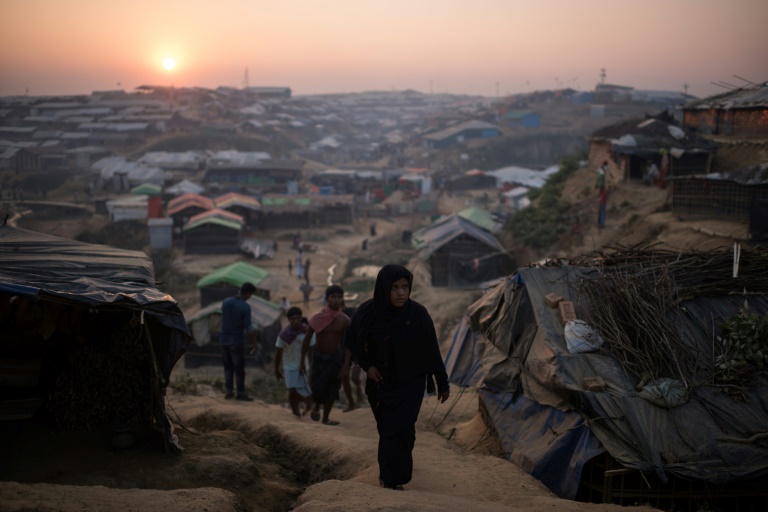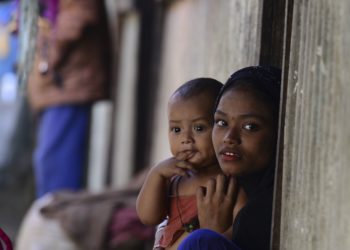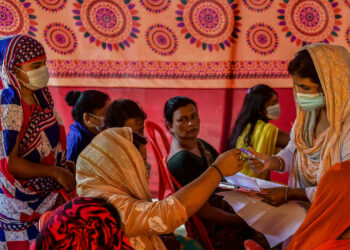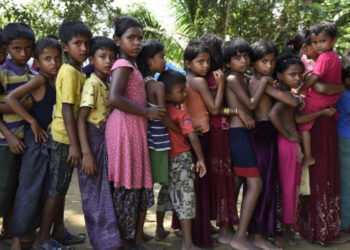Bangladesh has yet again shelved a controversial plan to relocate some 100,000 Rohingya refugees to a flood-prone island in the Bay of Bengal, a minister said Wednesday.
Authorities have long sought to relocate some of the country’s million-plus Rohingya population to Bhashan Char, despite warnings the silty strip of land was prone to violent and potentially deadly monsoon storms.
The move would take some pressure off the overcrowded border camps home to huge numbers of the persecuted and stateless Muslim minority, most of whom fled neighboring Myanmar in 2017 after a brutal military crackdown.
But rights groups say that some refugees had been coerced into agreeing to relocation and the plan has been staunchly opposed by the Rohingya community at large.
Junior disaster management minister Enamur Rahman said Bangladesh would increase its focus on diplomatic talks aimed at returning the refugees home.
“The relocation plan has been postponed,” he told AFP, adding that there had been “much progress” in repatriation discussions with Myanmar with China acting as an intermediary.
Bangladesh and Myanmar have already signed a repatriation deal to send back some Rohingya to their homeland – but safety fears mean very few have agreed to return.
Thousands are suspected to have been killed in Myanmar during the 2017 Rohingya crackdown and refugees brought reports of widespread rape and arson by soldiers and ethnic Rakhine mobs.
The evidence compelled the Gambia – a small West African nation – to bring charges of genocide against Myanmar in the U.N.’s International Court of Justice (ICJ).
The U.N.’s highest court issued a preliminary decision in January ordering Myanmar to do everything possible to end the alleged ongoing genocide of the country’s Rohingya Muslims.
The military denies nearly all wrongdoing and insists its operations were justified in order to root out Rohingya insurgents.
Bangladesh’s navy has spent years building homes, facilities, and floodwalls on Bhashan Char at a cost of $280 million.
More on the Subject
Rohingya Genocide Victims Recognized, But Major Challenges Remain
























